German way of raising children
Each country has different customs and practices and of course the way of raising children is also not similar.Unlike Vietnam, German parents value independence and develop responsibility in their children from a young age. They allow their children to do things that few Vietnamese children are allowed to do.
In Germany, people may not see parents holding and cuddling their children like in Vietnam. They have very separate lives and their children are like real family members. They participate in their parents' activities and are not just "devices" attracting attention. German parents comfortably drink coffee, play together and let their children do what they want.
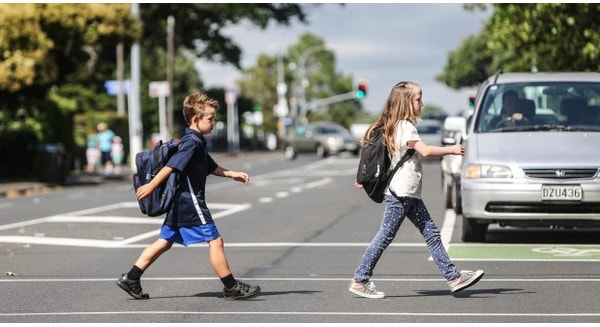 |
| German children walk to school without adult supervision. |
German parents teach their children to be independent from a very young age.
The reason is easy to understand because Germans respect the independence and responsibility of each individual. German parents do not let their children do whatever they want. They trust their children and let them develop in the ways they experience life.
In addition to the above characteristics, German parents also have other very unique ways of raising their children.
Do not force children to read books or study.
German kindergartens do not promote academic achievement or knowledge for young children. In fact, teachers and many parents here oppose forcing children to read books too early, they believe that this is a process that children must develop and accumulate with their friends as they grow up.
Kindergarten for Germans is a place for children to play and have their first social experiences. This continues until the first grade, when the child only has to attend half a day, and during this time, the time is spread out to add 2 extracurricular activities or exercise.
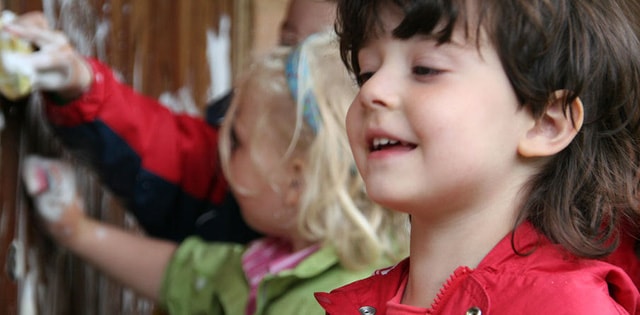 |
| German parents do not force their children to study too early and neither do schools. Children are free to play without having to worry about studying early like in other countries. |
However, do not think that this makes German children do poorly in school, statistics in 2012 showed that 15-year-old students in Germany had academic results much higher than the world average, these students have a good amount of knowledge, in addition to high self-discipline and outstanding health and social awareness.
Don't be afraid to let your children play with fire.
Perhaps this is a surprise to many Vietnamese parents when fire is taboo because it can cause burns to young children, in Germany this is completely opposite, children are exposed to fire from a very early age. Many children are even allowed to play with lighters, matches or burn many things to experience. Of course, these exercises are all done under the supervision of teachers or family.
Of course, dangerous activities such as fireworks or explosives are banned, but German children are free to play with fire from a very young age and they understand how to use it and the dangers it can cause as they get older.
Let your child go out alone
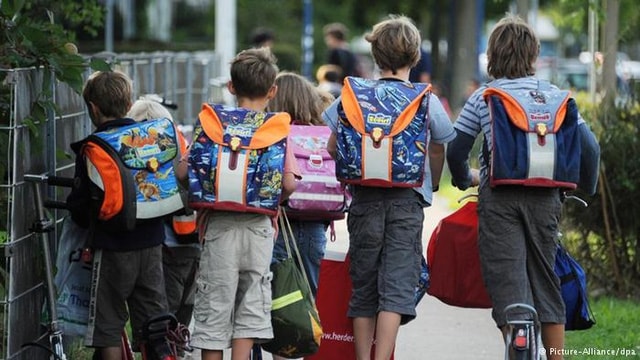 |
| German children walk to school and play around the house. |
German children walk to school and play around the house, unless the distance is too far, then German parents take their children to explore the world on their own. Some parents even let their children take the bus or train to school. They are not afraid of their children being kidnapped, but there are some concerns about traffic accidents.
However, this is probably only possible in Germany, where child abductions are extremely low, if not rare. German parents do this to give their children freedom of movement, and some scientists believe this is a good thing for the children.
Organize a party to celebrate the opening day
Germans have three most important milestones: Einschulung (starting first grade), Jugendweihe (becoming a young man) and marriage, so they have the right way to celebrate each of these important occasions.
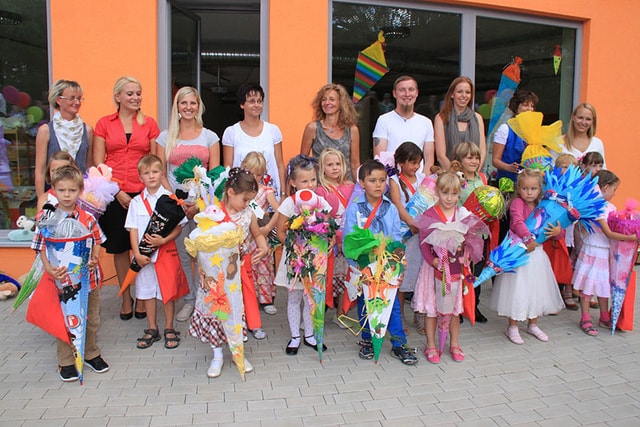 |
| Einschulung is a holiday when children celebrate, have fun, and receive big gifts before going to school. |
In Berlin, Einschulung is a big school celebration and it is held on Saturday. On this day, children will play together and receive a Zuckertute (a big gift with pens, watches, candy and other school supplies inside). After playing, children will go home and continue to celebrate with their relatives and friends. Einschulung is a celebration that any German child wants to attend, it has a positive impact on children's lives and partly stimulates them to go to school.
Jugendweihe begins when a child turns 14, and the party involves eating, dancing, giving gifts, and giving advice to children before they enter a new stage of life.
German parents take their children out every day.
There is a German proverb that says: "There is no bad weather, only inappropriate clothing". The value of going out every day is taught by Germans through both school and family. In Germany, there are also many playgrounds for children in public places for children to play freely.
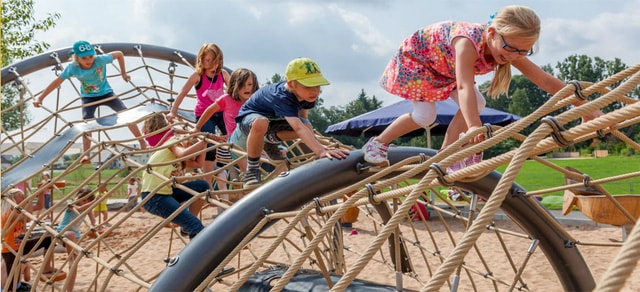 |
| In German playgrounds, children enjoy themselves playing games inside without any help from their parents. |
No matter the weather outside, rain or shine, hot or cold... Germans take their children out every day, let them go to the park and then let them play with other children their own age.
With the above methods, not only do German children practice independence from a very young age, but parents also have a "lighter burden" to focus their minds on other tasks. Notes are always followed and German parents are always ready to help their children whenever they need it.
According to Young Knowledge



